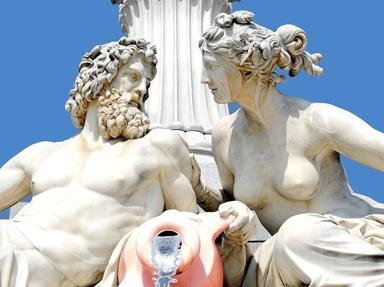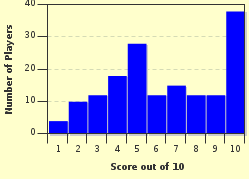Quiz Answer Key and Fun Facts
1. The primary Roman goddess of fortune, this deity can bring either good luck or misfortune to individuals in many different aspects as she spins her Wheel of Fortune at random. Who might she be?
2. Another Roman goddess, this deity represents good luck and success, unlike the primary goddess of luck who may bring either good luck or misfortune. Who might this good-luck goddess be?
3. In which of these mythologies is Laima a goddess of luck and fate, as well of childbirth and pregnant women?
4. In Japanese mythology, based on Shinto and Buddhist traditions and folklore, there are Seven Gods of Fortune. Which is the only female deity among these lucky seven?
5. One more Roman goddess associated with luck and prosperity is Abundantia. She is the guardian of which object of importance of the gods?
6. This next goddess is the Greek equivalent of a deity we have already seen in this quiz. She, too, is often portrayed in art with the Wheel of Fortune. Who is she?
7. Who is the Hindu goddess of wealth, prosperity and fortune, among other things?
8. In Greek mythology, which of these, a daughter of Eris and Zeus is, among other things, the Goddess of Misfortune?
9. In which of these sets of mythology or folklore are Bestalannitsa and Beda goddesses of misfortune?
10. In the Hindu tradition, who is the goddess of misfortune?
Source: Author
guitargoddess
This quiz was reviewed by FunTrivia editor
CellarDoor before going online.
Any errors found in FunTrivia content are routinely corrected through our feedback system.


